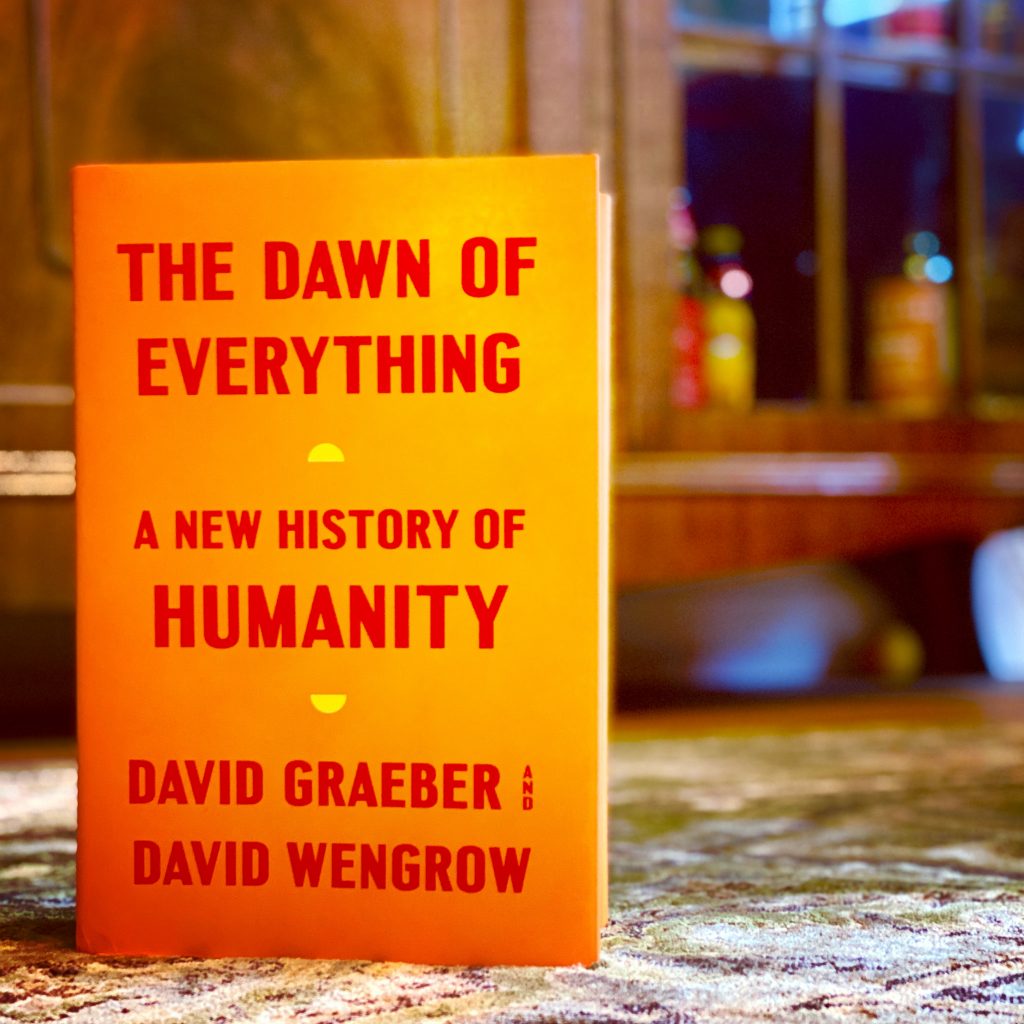
Prehistory. A massive book that looks at what is known and what can be reasonably guessed about the trajectory of human existence in the distant past, written by an anthropologist and an archaeologist. It is a bold new synthesis woven in part from straightforward reporting of empirical evidence long-known in specialist circles but rarely disseminated beyond that, and in part from novel and often against-the-grain readings of other evidence. I would dearly love to write a thorough, exhaustive, and careful review of this book, because I think it is tremendously important but I also think that we should engage with it carefully, but I don’t have time. From what I have seen, it has already been falling into predictably partisan readings, which is a shame because neither side necessarily does it justice. It is written with a mixture of scholarly care and deliberate provocation that I think was characteristic of Graeber (who passed away shortly after this book was completed and, sadly, will not be able to pursue the questions it raises). I think it is perfectly possible to be cautious about some of the grander claims that the book makes while still recognizing the importance of the work its does up-ending powerful myths that dominate the popular culture, and that also manage to continue to inform, animate, and haunt a great deal of scholarship that nominally disavows them. I have sympathy, for instance, with those who object to how this book talks about social change in seemingly voluntaristic ways – I don’t think that’s actually quite what it’s saying, and it certainly isn’t the best way to understand what it’s saying, but at points the book seems to go out of its way to sound like it is. But the sheer breadth it portrays of ways that human beings have lived together, its refusal to reduce the complexity and glorious diversity of human (pre)history to either a secularized version of the Fall or a progressive ascent from supposed barbarism, its willingness to recognize that sophisticated political thought and political struggle have always been with us and are not the exclusive province of the modern era, the strong case it makes for intellectual challenge by North American Indigenous peoples as a driving factor in the European Enlightenment, and its commitment to grounding even its more speculative elements in evidence make it worth reading and taking seriously. I think some of the work that it does around thinking through basic concepts found in so much social and political theory, like “the state” and “equality”, is worth engaging with too – not final or definitive, of course, because that’s not how these things work, but important interventions. And even setting all of that aside, and just looking at all of the many, many grounded examples it presents of human societies from eras spanning many thousands of years and many different parts of the world, I learned so, so much that was new to me about our collective past. So, yes, read it with the same care and caution we should always be using when we engage with accounts of the social world…but do read it if you can.
Originally posted by Scott on Goodreads.